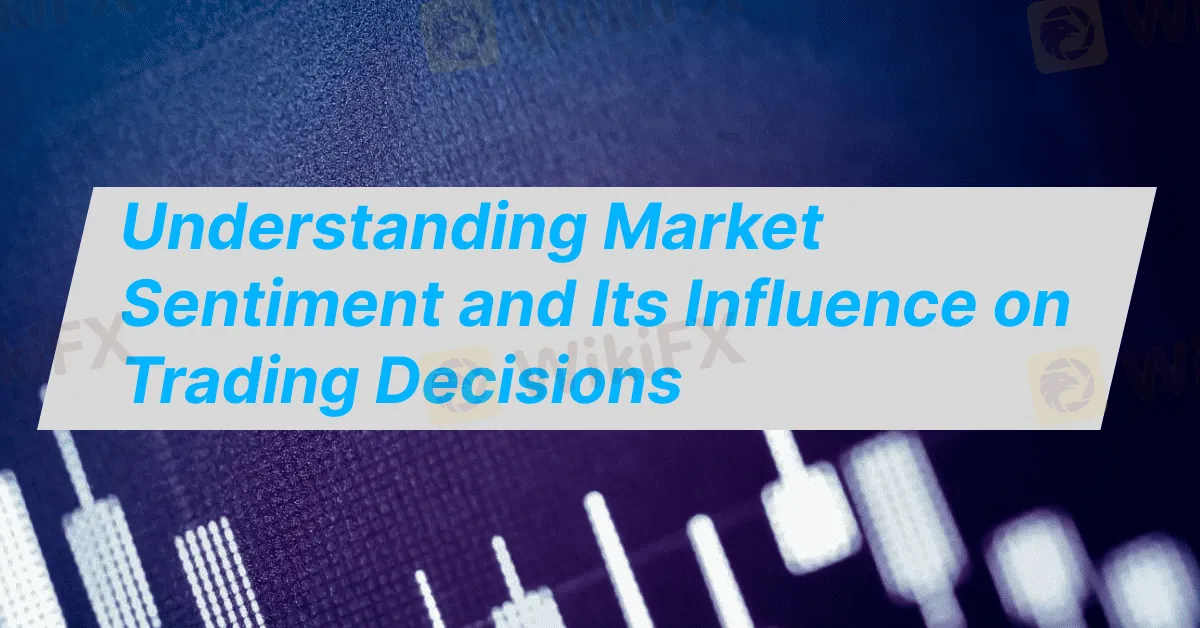简体中文
繁體中文
English
Pусский
日本語
ภาษาไทย
Tiếng Việt
Bahasa Indonesia
Español
हिन्दी
Filippiiniläinen
Français
Deutsch
Português
Türkçe
한국어
العربية
Understanding Market Sentiment and Its Influence on Trading Decisions
Abstract:market sentiment plays a pivotal role in influencing price movements and trader behavior. Understanding market sentiment can provide valuable insights that help traders make informed decisions. This article delves into what market sentiment is, how it is measured, and its impact on trading strategies.

market sentiment plays a pivotal role in influencing price movements and trader behavior. Understanding market sentiment can provide valuable insights that help traders make informed decisions. This article delves into what market sentiment is, how it is measured, and its impact on trading strategies.
What is Market Sentiment?
Market sentiment refers to the overall attitude of traders and investors towards a particular currency or the forex market as a whole. It encompasses emotions, biases, and psychological factors that drive market movements. Positive sentiment can lead to bullish trends, while negative sentiment can trigger bearish movements.
Factors Influencing Market Sentiment
Economic Indicators: Economic data releases, such as GDP growth, employment figures, and inflation rates, significantly affect market sentiment. Positive data often boosts confidence, while negative reports can lead to pessimism.
Geopolitical Events: Political instability, elections, and international relations can sway market sentiment. Traders closely monitor news events to gauge potential impacts on currency values.
Market News and Analysis: Analyst forecasts, market commentaries, and financial news can shape traders' perceptions and lead to collective market movements.
Technical Analysis: Patterns and indicators derived from price charts can influence traders' sentiment, creating self-fulfilling prophecies in price movements.
Measuring Market Sentiment
Sentiment Indicators: Various indicators help quantify market sentiment, including:
Commitment of Traders (COT) Report: This weekly report details positions held by different trader categories, helping assess market sentiment.
Market Sentiment Indexes: These indexes aggregate trader opinions, providing a snapshot of bullish or bearish sentiment.
Social Media and Online Forums: Analyzing discussions on platforms like Twitter, Reddit, or trading forums can offer insights into prevailing sentiment among retail traders.
Surveys: Surveys conducted by financial institutions can gauge investor sentiment, reflecting the market's mood.
Impact of Market Sentiment on Trading Decisions
Trend Identification: Traders can leverage market sentiment to identify potential trends. A strong bullish sentiment may indicate an upward price trend, prompting traders to buy. Conversely, widespread bearish sentiment could signal a downward trend, leading traders to sell.
Contrarian Strategies: Some traders adopt contrarian strategies, going against prevailing sentiment. When sentiment is excessively bullish or bearish, it may indicate a market reversal is imminent.
Risk Management: Understanding sentiment helps traders manage risk. If sentiment shifts dramatically, traders may adjust their positions to protect against sudden market movements.
Integrating Market Sentiment into Trading Strategies
Combine with Technical Analysis: Use sentiment analysis alongside technical indicators to enhance decision-making. For instance, if sentiment is bullish but technical indicators show overbought conditions, it may signal caution.
Stay Informed: Regularly monitor economic news, geopolitical developments, and sentiment reports to stay ahead of market shifts.
Emotional Discipline: Recognize the influence of emotions on trading decisions. Avoid impulsive trades driven by fear or greed by grounding your decisions in sentiment analysis.
Conclusion
Understanding market sentiment is crucial for successful forex trading. By gauging the collective mindset of traders, forex participants can make more informed decisions, identify potential trends, and manage risk effectively. Integrating sentiment analysis with technical and fundamental strategies can enhance trading performance and lead to more consistent results. As the forex market continues to evolve, staying attuned to market sentiment will remain a vital aspect of a trader's toolkit.

Disclaimer:
The views in this article only represent the author's personal views, and do not constitute investment advice on this platform. This platform does not guarantee the accuracy, completeness and timeliness of the information in the article, and will not be liable for any loss caused by the use of or reliance on the information in the article.
Read more

Unlocking the Power of Algo Trading: Benefits and Limitation
Algorithmic trading merges speed, data, and automation—but can it outsmart human intuition and market chaos? Explore its power and pitfalls.

Do This ONE Thing to Transform Your Trading Performance Forever
The story is all too familiar. You start trading with high hopes, make some quick profits, and feel like you've finally cracked the code. But then, just as fast as your gains came, they disappear. Your account balance dwindles, and soon you’re left wondering what went wrong. Worse still, fear and confusion creep in, making every new trade a stressful gamble rather than a calculated decision. If this cycle sounds familiar, you’re not alone.

This FREE App Is Helping Millions Avoid Financial Scams
Fraudulent brokers, Ponzi schemes, and deceptive trading platforms are on the rise, making it increasingly difficult to distinguish between legitimate and illicit financial services. Fortunately, there’s a powerful, free tool designed to help users identify and avoid scams before it’s too late—WikiFX.

Forex Explained in 60 Seconds: How It Works & Who Profits
Before diving into the forex market, it’s crucial to understand its mechanics, risks, and profit potential. Without a clear grasp of how forex operates, you risk losing money instead of making it. Here’s a concise breakdown to help you navigate this dynamic financial market.
WikiFX Broker
Latest News
Exposing the Top 5 Scam Brokers of March 2025: A Closer Look by WikiFX
Gold Prices Climb Again – Have Investors Seized the Opportunity?
Webull Launches SMSF Investment Platform with Zero Fees
Australian Regulator Warns of Money Laundering and Fraud Risks in Crypto ATMs
FCA Warns Against 10 Unlicensed or Clone Firms
CySEC Warns Against 14 Unlicensed Investment Websites
Top Currency Pairs to Watch for Profit This Week - March 31, 2025
Will natural disasters have an impact on the forex market?
Philippines Deports 29 Indonesians Linked to Online Scam Syndicate in Manila
The Withdrawal Trap: How Scam Brokers Lure Victims into Paying More
Currency Calculator







